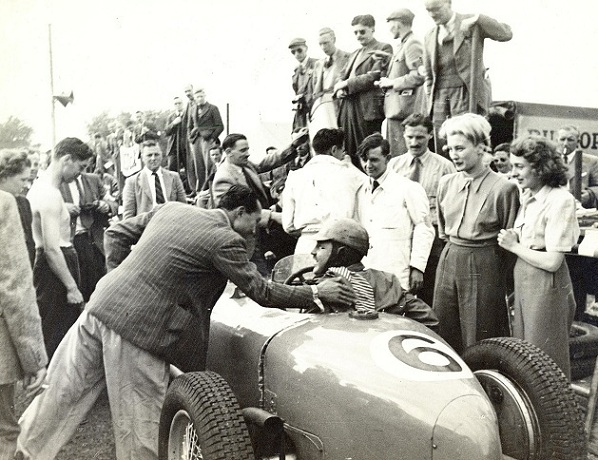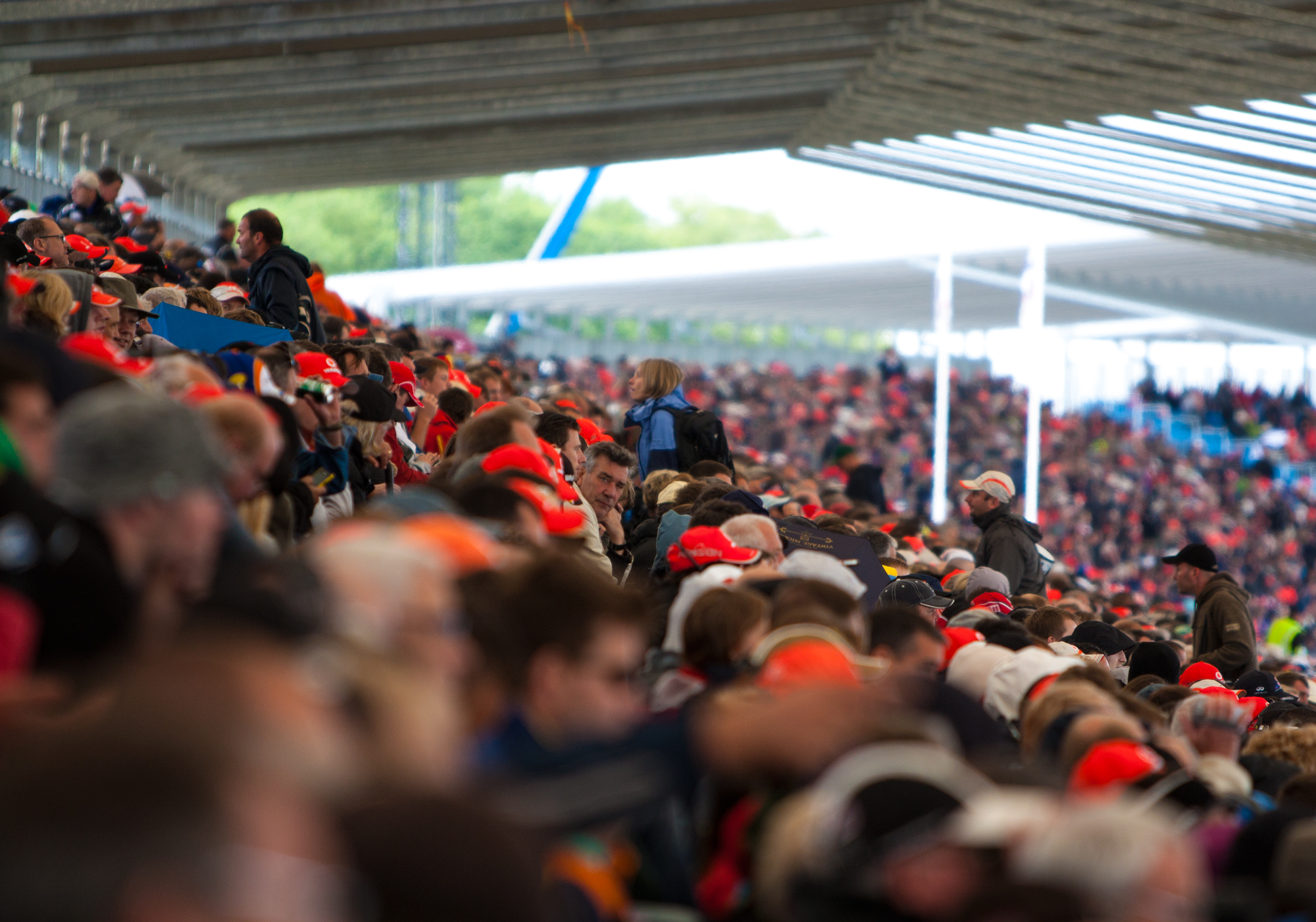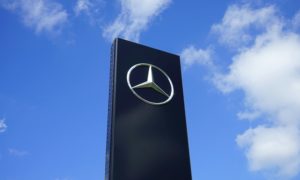The 2011 season is over. The dust has well and truly settled on Sebastian Vettel and Red Bull’s domination and there are only a few superlatives left in the thesaurus for shell-shocked observers to use about the man – the phenomenon – this season. After all, he and they were the very best this year, by a country mile. Not for them the 2010 infighting and on-track scuffling, nor the politics, nor worries about the car. This year they were on top of their game and the others were left wondering how on earth they would catch them. And that is the premise with which we begin this review – the notion that one team and more specifically one driver were so unbelievably good this season that only praise can be directed at them.
Of course, Vettel the wunderkind is not the only story of this season. Jenson Button was outstanding, particularly in the latter half of the year. The entertainment (usually behind Mr Vettel) was superb; more than 1400 overtaking moves there were this season, for which fans must thank DRS and KERS. Then there was Canada, the race to remember when you are aged and children ask what F1 used to be like. But there were also the downsides. The dreadful loss of Robert Kubica before season’s start and the sad news that he won’t be back in 2012 should not be forgotten. Bernie Ecclestone’s decision to move F1 to pay-television was not his finest hour, and still rankles with many. Lewis Hamilton’s tribulations. The very first Indian Grand Prix.
So how to distil it all? How to quantify this season of wonder? The teams and the drivers will be evaluated in their finishing order, as far as possible. Judgement, however subjective, will be passed. But achievement, skill and talent are stark, and strike a chord with any true F1 fan. They were qualities that were on show in abundance this year…
Red Bull: Red Bull got it absolutely right this season. After the taste of victory last year, they creditably displayed no want of motivation, and drove hard to ever-greater heights. The RB7 was superb – lean and shorn of the vast majority of the reliability gremlins that had still dogged its immediate predecessor, it ticked the final box and will go down as one of the greatest cars ever. Man-management was faultless and although Christian Horner’s life was made easier by Mark Webber’s lack of cutting edge competitiveness, Horner still led the ship expertly. Hegemony beckons. 9/10
Sebastian Vettel: The measure of Vettel’s season can perhaps best be taken by what he failed to achieve. And here are the statistics. He failed to win seven races…he was not on pole on four occasions…he did not lead for 394 laps. The remainder of the 1133 laps, he was in front. There you have it. Writing and conjecture may be abstruse, but facts cannot be questioned. This was one of the best year-long performances in living memory – up there with Schumacher, Prost, Mansell, Senna in recent decades. He did not simply win – he blew the opposition away. Psychologically, he was even further ahead; how else to explain Mark Webber – a resolute and gutsy performer – having his spirit broken in such a way as it was this year? Hamilton was nowhere; Alonso was usually chasing shadows; Button could only occasionally hold a candle to Vettel. Those three drivers just mentioned are some of the greatest ever, and they are drivers to whom Vettel only succumbed once mentally, in Canada. The extent of his control over the pack at the next race……showed how much thrift he gave the idea of vulnerability. The relative fallibilities of his rivals will be debated in other paragraphs, but who is to say Vettel did not cause those weaknesses in others? The confidence which 2010’s maiden title gave him was the spur for further glory, which means that 2012 looks to be yet more glorious, or ominous, depending on your point of view. But nothing lasts forever, which is why true greatness must be recognised and celebrated in the moment. 10/10
Mark Webber: Webber’s season must rank as one of his most disappointing. His position at the start of this season was one of hard-fought parity with his team mate, and unless you subscribe to the hackneyed conspiracy theory that Vettel was favoured, you have no choice but to believe that he was utterly outdone in very similar machinery. Every race weekend there was the distinct, tangible anticipation that this could be Webber’s race; the one where he turned the tide; the one where his title campaign would begin in earnest. He would look as he had in 2010 – combative, fast and best of all a potential winner. But the recovery never materialised – it was always a phantom. His qualifying pace rarely threatened the front and his starts let him down badly. On average he lost more than a place on lap one every race, losing a total of 22 positions over the course of the season. By mid-season it looked as if his back had been broken by the brilliance of the man across the garage, and there can be no escaping that miserable conclusion for the Australian. One positive is that he did enough to secure the seat for next season, and so he will have another chance to go at Vettel. As one of the most respected drivers in the paddock, he deserves it, but his reputation will be made or broken by how 2012 goes. 2011 wasn’t, unfortunately, anywhere near good enough. 4/10
McLaren-Mercedes: A strange year for the Woking concern. They produced a good car, capable of winning races, with good development prospects; they had two drivers of excellent pedigree, both world champions; and a solid financial and engineering background. How, then, to account for their failure to triumph this season? Two words – the first is a colour and the second an animal. McLaren were just outclassed this season despite having done what in most seasons down the years would have been a good enough job. Martin Whitmarsh has grown into his role, managing a potential team mate clash well, and will be especially pleased with how Jenson Button did this year – but can the avuncular Whitmarsh be the man to take the fight to the drinks company? Top marks for effort but they will need to up their game next season. 7/10
Jenson Button: This was Button’s best season in F1 – and yes, his championship year is included in that bold assertion. Relaxed in himself, at home in the professional McLaren environment and spurred on by Hamilton’s travails, Button began the year confident and ended it as the de facto and de jure team leader. His first win of the year, in Canada, was quite simply one of the greatest victories ever. As if anyone needed reminding, he made 34 passes during that race, coming from the back of the grid and surviving being hit by his errant team mate. His determination and relentless pace in hunting down Vettel towards the end made for spectacular and exciting viewing and Button had showed the world a new version of himself – a great one. His by-now acknowledged mastery of changing conditions led to further glory in Hungary, an emotion-driven victory in Japan showed that he drove with passion, and towards the end of the season he was the only man who was in the right place to challenge the overarching dominance of Vettel. That he could not ultimately overhaul the German is perhaps not to be focused on – that he got closest is recommendation enough. A force to be reckoned with for 2012. 9/10
Lewis Hamilton: By direct contrast with Button, this was Lewis Hamilton’s worst season in F1. The tribulations are numerous. Whether it was losing his father as manager, breaking up with his pop star girlfriend, visiting the Red Bull motorhome to cack-handedly smoke out the possibility of driving for them, ugly on-track comings-together that tarnished his fearsome reputation, or repeated and undignified run-ins with (admittedly occasionally over-zealous) stewards, Hamilton got a lot of things very wrong this year. The debate has raged over which of these factors were causal – at heart, perhaps, the frustration engendered by his McLaren’s inferiority to the Red Bull – but the verdict that Hamilton’s stock is a lot lower now than it was at the end of 2010 cannot be escaped. He did, despite all this, win the same number of races as his team mate; he led more laps than anyone except Vettel; and woe betide anyone who thinks that he has lost any of that speed or greatness. For whatever reason it wasn’t as obvious, though, in 2011. 5/10
Ferrari: Another year which will go down as a work-in-progress for the Scuderia. Like their English rivals’ car in Woking, the F150th Prancing Horse was not lame this year; neither was it often sick, nor ugly. It was a simple, capable, decent nag, peering out of its blinkers at the preened thoroughbreds in front of it. Stefano Domenicali is immensely likeable but seems to lack a certain ruthlessness, and perhaps also the drive to get the Scuderia to the front. Occasions where it looked like a developmental kick might be in the offing came to nought, and an air of impasse hung about the Italian team. Being third is not where Ferrari should be, is the received wisdom, and so this year goes down as a failure. 6/10
Fernando Alonso: As ever, Alonso was a joy to watch this season. He has technical ability in bucketloads and determination and speed to match. No race is ever over until Alonso says it is, and that is the mark of a great driver; his standing seems to increase year-on-year, despite the relative lack of success. Moments of glory included a third place in Turkey; a win in Silverstone that should have heralded Ferrari’s 2011 renaissance but did not; wonderful starts in Spain and in Monza that were truly exhibitions of divine skill, and a resulting third place in front of the tifosi. He still faces his greatest challenge, though, which is to take the Scuderia back to the top of the sport, almost single-handedly. Much fault with his driving, however, cannot be found. 8/10
Felipe Massa: On occasion it is quite difficult to comprehend how Felipe Massa still has a top seat in F1. He seems to be a wonderfully nice chap, so that must be it. Unfortunately, there was not much evidence in 2011 that he deserved it. He was often off the pace, and notable only for his magnetism to Lewis Hamilton. In other seasons, the proximity of Massa to Hamilton might recommend the Brazilian, but given Hamilton’s malaise and the sordid nature of their attraction, no endorsement can be accorded to anyone. Admittedly, a majority of the incidents were the other man’s fault, but Massa’s reaction betrayed a frustration with his season as a whole. Fifth-placed finishes were his in Malaysia, Europe, Britain, Germany, Abu Dhabi and Brazil, but no better. A step up is required from the Brazilian. 4/10
Mercedes-Benz: 2011 was an improvement for the Anglo-German concern over the previous year, and towards its close there had begun to be a vague sense that they might just be getting it all together. Schumacher does not have time to work the same miracle as he did at Ferrari all those years ago, but he hasn’t forgotten much of his motivational prowess. Ross Brawn is as much of an inspiration as ever and is one of the cleverest in the paddock, so in that sense anything less than victory is not good enough. But enough signs of improvement over the course of the season mean that Mercedes’ trajectory is an upward one. 6/10
Nico Rosberg: 2011 was a consistent year for the younger German; he took two fifth-places, four sixths, and five sevenths. More importantly for him and for observers was his claim to the bragging rights within the team. Despite Schumacher’s late improvement, Rosberg is the faster, the cleaner and the more reliable of the two, and he is the one who will be charged with taking the team forward. No one in F1 should have any doubt that Rosberg is a potential champion in the making and that when Mercedes give him a car capable of winning he will win and win well. At the moment, and throughout 2011, he has been making do with what he has. And his performances are worthy of credit as such. 7/10
Michael Schumacher: Six races into the 2011 season, the calls for Michael Schumacher to go back to Switzerland and anti-drink-driving campaigns must have been penetrating even the famously self-confident seven-time champion’s aura. There had been six races in which the best finish had been sixth; there had been two retirements, and it was painfully obvious that like 2010, 2011 would be another year where Schumacher’s championship aspirations would be thrown – with a horrific lack of respect – back in his face. Then came Canada, and that fourth-placed finish that showed the man at his very best. The rest of the season was not always glittering, again, but the very knowledge that that old Michael existed somewhere and occasionally was on show – as well in Spa, Italy, Japan and Korea – was manna from heaven for fans. If the car is fast next season, 2011 gave evidence that Schumacher can still be a contender. 6/10
Lotus-Renault GP: Renault endured a mixed 2011, in which it is fair to say they blew hot and cold. Despite its 1980s retro looks and flowing lines, the R31 was not one of the quickest out of the box, and it is a great, lamentable shame to speculate about what Robert Kubica might have done with it in terms of development. Eric Boullier carries himself well and was dealt a poor hand by Kubica’s injury; in the circumstances not much else could be done. He was right to sack Heidfeld, although by then the horse had bolted – the team had been left behind. Direction, motivation and cold hard industry is needed in 2012 – did someone say “Kimiâ€? 5/10
Vitaly Petrov: Renault’s only season-long runner, Petrov flattered to deceive this season. After a competent 2010 he was called to lead the team in the wake of Kubica’s withdrawal, and the reality was that he failed to do that. A podium in the first race and fifth in Canada were the only highlights; the lowlights being his inexplicable foot-in’ take-off in Malaysia, and even less comprehensible overt attack on the team after Abu Dhabi. Where does he go from here? He has shown flashes of talent, but not enough perhaps to recommend him if there weren’t roubles oiling the wheels. 5/10
Bruno Senna: Senna was disappointing in 2011. The hope had been that the fundamental if not spectacular competence of the R31 would be enough to allow him to demonstrate the fabled speed that his uncle had been on about, but in reality there was only qualifying in Belgium to shout about, and he even went and ruined that with a kamikaze start. Senna has perhaps had his chance now, and if some of us were romantically hoping he’d be the reincarnation of Ayrton, we have seen enough to be dissuaded. 4/10
Force India-Mercedes: A solid effort from the Silverstone-based outfit this year that saw them lay hands on sixth place in the constructors’ table with confidence. The team is going places and most definitely has talent and potential in depth. The VJM04 was a reliable car from Andrew Green, and the leadership of Vijay Mallya seems to be effective and shrewd, as showed the astute sale of shares in the team to Sahara. The support for the team at the inaugural Indian Grand Prix demonstrated that the team seems to have a promising future, and the longer they can hold onto Paul di Resta the brighter it will be. 7/10
Adrian Sutil: In spite of a series of unflattering comparisons with his team mate, and having lost his seat for 2012, Sutil did not do a terrible job in 2011. He was in the points no fewer than nine times, and counted two sixth-placed finishes amongst those. The trouble was, Sutil was expected to take his rookie team mate to the cleaners in qualifying, which he did not do. In fact they were nine apiece in grid superiority, and if Sutil is a man with pretensions to top team seats, that does not suffice. Weirder yet was the incident in the Chinese nightclub, which mercifully came to nothing, but must have been distracting. Sutil’s career, which has at times looked promising, threatens to plateau unless he can get himself somewhere for next season. But on the basis of 2011, and in these lean times, it’s difficult to see which of the top teams will be in a rush to get his signature. 5/10
Paul di Resta: one of the drivers of the year, and not just because he was a rookie. This season di Resta showed confidence, maturity, speed and chutzpah and will ride into 2012 on a wave of respect in the paddock. It was true that his season had been mediocre until Hungary, but thereon in, with a Button-esque ability to control his car and tyre wear in those conditions, he looked every bit a future champion. The performances in Italy, Singapore, Korea, Abu Dhabi and Brazil were also meritorious and the real curve of improvement he showed throughout the season may stand him in good stead for the future. 7/10
Sauber-Ferrari: Sauber are a valiant outfit, invariably battling heroically against teams with much bigger budgets and doing Switzerland proud in the process. 2011 was no exception, with the team repeating its eighth position in the constructors’ table. James Key is an experienced technical director but his C31 was not an outstanding car, with a sprinkling of points finishes its recommendation. What does the future look like for Sauber? Both of their drivers are competent and if they are retained, the possibility of moving up the grid is a very real one for the doughty Hinwil team. 6/10
Kamui Kobayashi: Kobayashi’s dynamic and wonderful rookie year in 2010 was not replicated in 2011, but maturity and consistency also become the Japanese. A run of six points finishes in the early season could not be sustained, but tenth in Abu Dhabi and ninth in Brazil meant his season was book-ended by strong performances. A slightly worrying propensity for contact with the scenery and with others set to one side, he is by a country mile the best Japanese driver of the last two decades and it is earnestly to be hoped that he will be in F1 for a very long time to come. 6/10
Sergio Perez: After an amazing Australian debut for which he was regrettably disqualified, Perez’s season went off the boil. A nasty crash in Monaco would have done his confidence no good at all, but the 2011 season was by and large a fair effort from the Mexican. Ninth in Spain, seventh in Britain and eighth in Japan promise a sparkling career from Perez, whose name is already linked with Ferrari, even in the not-too-distant future. 6/10
Toro Rosso-Ferrari: If some teams and drivers are to be congratulated on their consistency, the Scuderia Toro Rosso is not one of them. At times this season – Canada, Hungary, Italy and Korea, in all of which both Alguersuari and Buemi finished in the points – they looked genuinely as though they were heading for the upper end of the midfield. At others – China, Japan, Abu Dhabi – they looked as though they hadn’t yet managed to shrug off the tag of perennial backmarkers. Franz Tost is a good man at the helm, but there is a strong belief that he is not totally in charge of pulling the strings. The team’s ruthless replacement of their two drivers for 2012 has gore-marks all over it. With real talent behind the wheel, as they had in 2008 with Vettel, they can look like a competitive team. 6/10
Jaime Alguersuari: This year represented a definitive improvement for the Catalan. He was consistent and on occasion scored a hatful of points – Canada, Europe, Korea, India. His qualifying sixth in Belgium was a good achievement, and it was not his fault in the slightest that Bruno Senna forgot where his brake pedal was in that race. Korea, where he passed Rosberg on the last lap, was another highlight. Over the season Alguersuari also outscored his team mate by 11 points. As such, his ousting from the seat for next year is the more difficult to comprehend. 6/10
Sebastian Buemi: Buemi was not outclassed by Alguersuari this year, and that is to his credit. The Swiss was there or thereabouts most of the time, and his season started well, with an eighth place in Australia that would be replicated in Hungary. That was it, though. Luck did not seem to be with him much of the time, but F1 is a cruel game, and he has not shown flashes of speed frequently enough to be part of STR or anyone else’s long-term plan. Which is a shame. 4/10
Williams-Cosworth: 2011 was the year when what had looked sadly inevitable for some years came to pass – that the great marque Williams became a backmarking team. Their pre-season removal of the talented Nico Hulkenberg and replacement with Pastor Maldonado allegedly because of the Venezuelan money that the GP2 champion would bring would be a tragic indictment of how low the team had sunk if it could be proved. Their plummeting from sixth place in the 2010 constructors’ table to ninth in this season’s is cold hard fact; as are the nine separate retirements; as are the paltry three points finishes. It is sincerely to be hoped that a collaboration with Renault for next season will rejuvenate the squad; time will tell how the loss of Sam Michael and presumably Rubens Barrichello affects them. 3/10
Rubens Barrichello: Facing continued and louder calls for his retirement, Barrichello will not look back with fondness on 2011. Two ninth places, in Monaco and Canada, were perhaps celebrated quietly, but although finishes were often achieved, his season tailed off. An interview with the BBC prior to the last race suggested he had no intention of retiring quietly, but it is difficult to envisage anything like a marvellous comeback. 4/10
Pastor Maldonado: Maldonado showed in Monaco that he knows how to drive an F1 car quickly, and was set for a season-best result until Lewis Hamilton cruelly intervened. Other than that, some mid-late year consistency belied a rookie in a dog of a car not doing very well. Because of the nature of the sport in this era, Maldonado will probably have a seat next year, and will have another chance to prove himself. 4/10
Lotus-Renault: Lotus’ season could be seen one of two ways. Either they are the plucky boys from Norfolk, doing an honest job on a low budget; or they are a team that have now been in F1 for two years and despite Tony Fernandes’ generosity and Mike Gascoyne’s engineering prowess, never got anywhere near a point. The reality is somewhere between the two – they showed real improvement towards season’s close, and are quite the top dogs at the back of the grid. To be taken seriously they have to make a step forward for 2012, when they will be called Caterham. 5/10
Jarno Trulli: As pleasant a character as he undoubtedly is, it is increasingly burdensome to justify Trulli’s continued involvement in F1. The car is not good, and even if next year’s is, Trulli is not even as fast a driver as he once was, let alone being capable of beating Kovalainen in qualifying. His race speed was better, especially in the early part of the season. But meanwhile, Karun Chandhok needs experience in the car to show what he can do, and Trulli’s unwillingness to yield his seat risks appearing selfish and intransigent. 4/10
Heikki Kovalainen: The Finn did a good job this season, as difficult as it is for one’s star to shine at the back of the grid. He outqualified his team mate, either Trulli or Chandhok, 17 out of 19 times, and his running as high as tenth in Korea showed that that elusive point is maybe just an attritional race away. As it was, 13th place in Italy was the highlight, but Kovalainen is a central pillar of this team’s aspiration. 6/10
HRT-Cosworth: HRT’s performance over the year is hard to evaluate given that any progress, whether in financial solidity or speed, has such little consequence on the racetrack. They are a team that usually, but not always qualify within 107% of Sebastian Vettel; they participate in the same motor races as lots of other faster cars, serving the dual purpose of challenging those faster cars by creating two additional mobile chicanes, and of being a rehearsal space for young drivers. The value of the latter, though, is questionable, given that any talent Daniel Ricciardo may have is almost definitely obscured by the shortcomings of the chassis. As such it is hard to understand what their targets are for 2012, but F1 fans should wish them all the luck in the world. They’ll need it. 2/10
Daniel Ricciardo: Success in lower formulae and that Jerez test in 2009 has shown the Red Bull hierarchy that Ricciardo has ability, and must have resulted in his getting the Toro Rosso seat for next season. Why? Because his performances in the HRT could have been the best thing since Tazio Nuvolari, and no one would have a clue. Competition from Tonio Liuzzi is not much of a barometer, either. As it was, 18th place finishes in Hungary and India are what constitute his 2011 F1 success so far; experience is valuable, though, and he will need every bit of it next season. 5/10
Vitantonio Liuzzi: Liuzzi was beaten four times by Ricciardo in races where they both finished, and only beat him once, which was in the Australian’s first race. He did beat Karthikeyan four times, though, and managed to finish 13th in Canada, so it was not a disastrous season. He has done admirably well to persuade team bosses that he should still be in F1, but might have to do that again. 4/10
Virgin-Cosworth: Falling further behind fellow new boys Lotus cannot have been the plan for Richard Branson et al for 2011; the further indignity of failing to beat HRT still less so. A run of six finishes, mid-season, was the highlight. The signs are tentatively positive, though – the end of the collaboration with Wirth Research should pay dividends, particularly after the complete CFD design debacle. Marussia’s money and Pat Symonds’ expertise also point upwards for the little team. Goodness knows they could not go much further downwards. 1/10
Jerome d’Ambrosio: D’Ambrosio did not do badly this season, given the car’s intransigence. Two 14th places, in Australia and Canada, are not to be sniffed at, and his race disposal of the more experienced and relatively highly-rated Glock is of further credit. He has not set the world alight, but it is very debatable whether any means of creating a spark was available to him in 2011. 3/10
Timo Glock: Glock is a useful driver, but as with so many others at the back of the grid, F1 is a team sport which requires an extraordinary level of performance from a very great number of people for the individual’s talent to shine through. This situation is not the case at Virgin. Having said that, he should have beaten d’Ambrosio comfortably in races, and he didn’t. A 14-5 victory in qualifying is proof that Glock is quick. 3/10






